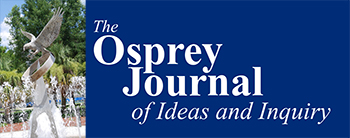
All Volumes (2001-2008)
Volume
Volume VI, 2007
Faculty Sponsor
Dr. Theophilus C. Prousis
Document Type
Article
Publication Date
2007
Abstract
Among Germany’s Christians in the early twentieth century, Protestants were the most prevalent. Protestantism was bound to Germany’s history and society in the man of Martin Luther and the sixteenth-century Protestant Reformation, and the Protestant church had since been a key force in constructing a moral universe for the German nation into the twentieth century. However, Hitler’s conscious construction of a new moral order directly challenged that universe by virtue of nationalism, allegiance to the Führer, racism, and eventually a war of conquest and genocide. His aim was total control, but “Nazi claims of success in converting the nation to their set of values… were exaggerated,” argues Alan Bullock, “The clearest expression of this was the split in the Protestant churches.” Nazism confronted Germany’s spiritual leaders with a difficult choice: they could either capitulate and marry Protestantism with Nazism, as did the German Christians, or they could explicitly reject Nazism and face persecution at the hands of the state, as did the Confessing Church.
Suggested Citation
Radcliffe, Mike, "Resistance and Accommodation: Protestant Responses to Nazism" (2007). All Volumes (2001-2008). 40.
https://digitalcommons.unf.edu/ojii_volumes/40

